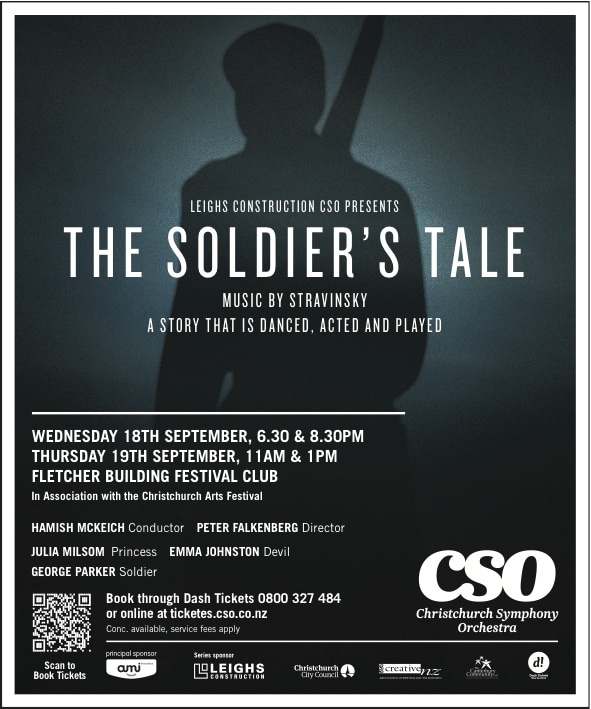DIRECTOR'S NOTES
The soldier in Stravinsky’s The Soldier’s Tale is a violin player, a musician, an artist. Coming from the war he wants to go home, but meets the devil in disguise to whom he sells his violin, his art, his soul, for money. To us this still seems a relevant tale that we are living every day when we try to make a living from our art as musicians, actors or dancers. In our approach we try to integrate the musical and theatrical performances that are juxtaposed in the original script. So we have asked the conductor to also play the narrator and we share the single small performance space.
A game for power is set up where the soldier artist and the devil struggle for control over the music, that is, our soul. Stravinsky lets the devil win in the end. So are we selling ourselves to you, our audience, or is it the music itself that is so devilish?
Peter Falkenberg
The soldier in Stravinsky’s The Soldier’s Tale is a violin player, a musician, an artist. Coming from the war he wants to go home, but meets the devil in disguise to whom he sells his violin, his art, his soul, for money. To us this still seems a relevant tale that we are living every day when we try to make a living from our art as musicians, actors or dancers. In our approach we try to integrate the musical and theatrical performances that are juxtaposed in the original script. So we have asked the conductor to also play the narrator and we share the single small performance space.
A game for power is set up where the soldier artist and the devil struggle for control over the music, that is, our soul. Stravinsky lets the devil win in the end. So are we selling ourselves to you, our audience, or is it the music itself that is so devilish?
Peter Falkenberg



